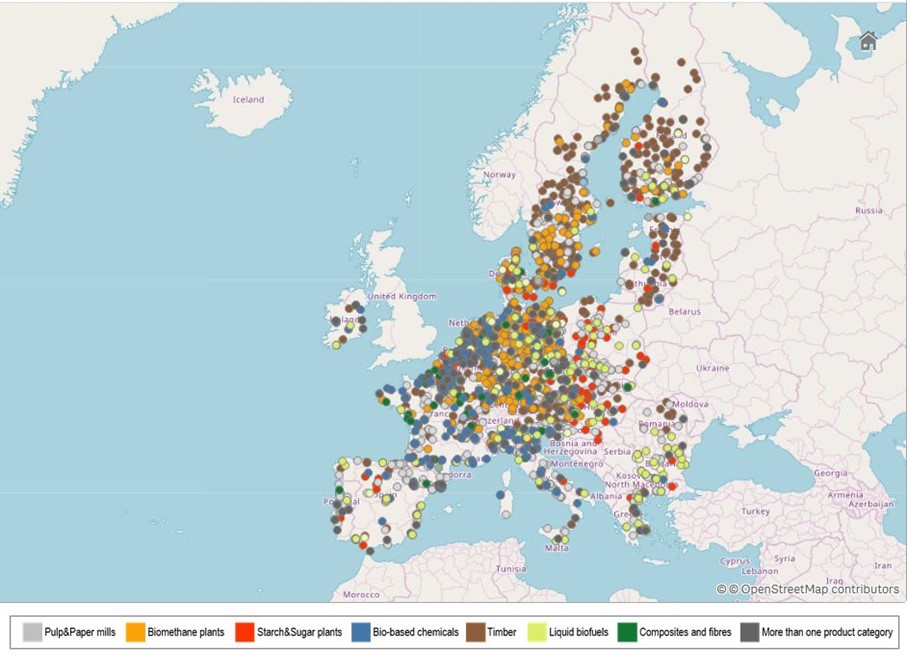In recent years, BTG has collaborated with leading European partners in the bioeconomy, such as the JRC, which resulted in major steps forward in enhancing data on bio-based products, industries and markets, giving everyone involved in the bioeconomy new insights. The results include:
- Market information on the EU’s bio-based chemicals production, establishment of indicators that can be used to better analyse the economic performance and sustainability of bio-based chemical activities and products; also the basis of a peer-reviewed article;
- A report on bio-based value chains, comparing bio-based chemicals, plastics and pharmaceuticals to those derived from fossil-based technologies. This information can be fed into modelling tools to simulate different development pathways for new bio-based innovations;
- A bio-refineries dashboard which is filled with data on biorefineries in the EU, including information such as location, feedstock, and product type. The dashboard is accompanied by a report.

The dashboard shows the distribution of chemical- and material-driven bio-refineries in the EU. ©EU 2021
These three research outcomes provide experts, policy makers and industry with useful information to shape their approach to the bioeconomy.
For example, the biobased chemicals market information provides an approach how to collect market data on bio-based products, which are not (fully) reflected in statistics, using sources of different quality. It also provides the market data for 50 representative bio-based chemicals.
The report on bio-based value chains shows which factors are likely to have the most impact on production cost of bio-based chemicals, plastics and pharmaceuticals in Europe, so that production processes can be optimised. It also includes a top-down global analysis of the market and production volumes of bio-based products.
The bio-refineries dashboard presents an overview of 298 chemical and material driven biorefineries in the EU and beyond. The interactive dashboard allows the user to select only biorefineries of certain feedstock, location, etc., which helps the user to gain insights into the current status of the bioeconomy. The work related to the biorefineries contributes to activities of the recently created biorefinery working group of the International Bioeconomy Forum.
Significance of the bioeconomy for Europe
The bioeconomy helps to make innovative, high value-added products that contribute to the transition to a more sustainable Europe. Through the European Bioeconomy Strategy and action plan, the EU strives to unlock the full potential of the bio-based sectors to boost Europe’s competitiveness and provide jobs, while protecting biodiversity and enhancing the multiple services ecosystems provide. However, policymakers need reliable data to take well-informed actions that address trade-offs.
The JRC has, since 2017, managed the European Commission’s Knowledge Centre for Bioeconomy. It pulls together knowledge and expertise from different sources, including the experts at BTG, to assess the status, progress and impact of the bioeconomy.